Michael Tobar: Precision Metrology with Photons, Phonons and Spins
Professor Michael Tobar: UFFC-S Virtual Lecturer Education Series
As IEEE UFFC Distinguished Lecturer for Frequency Control for 2021/2022, EQUS Chief Investigator Professor Michael Tobar will present a lecture at The University of Melbourne on precision metrology.
Title: Precision metrology with photons, phonons and spins: answering major unsolved problems in physics and advancing translational science
When: Thursday 7 April 2022, 5:30–6:30 pm AEST
Where: Singapore Theatre, Glyn Davis Building, The University of Melbourne, Parkville
Abstract:
The Quantum Technologies and Dark Matter Laboratory at UWA has a rich history of developing precision tools for fundamental physics and industrial applications. This includes the development and application of novel low-loss and highly sensitive resonant photonic and phononic cavities, such as whispering-gallery and re-entrant cavities, and photonic bandgap and bulk acoustic-wave structures. These cavities have been used in a range of applications, including highly stable low-noise classical and atomic oscillators, low-noise measurement systems, highly sensitivity displacement sensors, high-precision electron spin resonance and spin-wave spectroscopy, high-precision measurement of material properties, and applications of low-loss quantum hybrid systems, which are strongly coupled to form polaritons or quasi-particles. Translational applications of our technology has included the realisation of the lowest-noise oscillators and systems for advanced radar, the enabling of high-accuracy atomic clocks, and ultra-sensitive transducers for precision gravity measurements.
Meanwhile, there is currently a world-wide renascence to adapt precision and quantum measurement techniques to major unsolved problems in physics. This includes the effort to discover 'beyond standard model' physics, including the nature of dark matter, dark energy, and the unification of quantum mechanics and general relativity into a theory of everything. The aforementioned technology has been adapted to realise precision measurement tools and techniques to test some of these core aspects of fundamental physics, such as searches for Lorentz-invariance violations in the photon, phonon and gravity sectors, possible variations in fundamental constants, searches for wave-like dark matter and test of quantum gravity. This work includes: (1) our study and application of putative modified physical equations due to beyond-standard-model physics to determine possible new experiments; and (2) an overview of our current experimental program, including status and future directions. This includes experiments that take advantage of axion–photon coupling and axion–spin coupling to search for axion dark matter, high-acoustic-Q phonon systems to search for Lorentz violations, high-frequency gravity waves, scalar dark matter and tests of quantum gravity from the possible modification of the Heisenberg uncertainty principle.
Major funding support

The Australian Research Council Centre of Excellence for Engineered Quantum Systems (EQUS) acknowledges the Traditional Owners of Country throughout Australia and their continuing connection to lands, waters and communities. We pay our respects to Aboriginal and Torres Strait Islander cultures and to Elders past and present.


